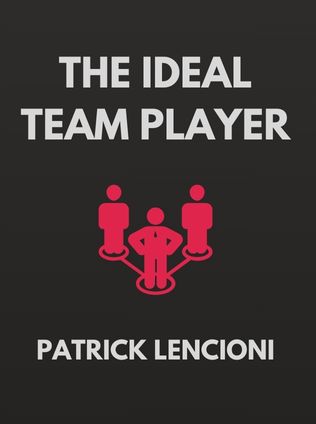
The Ideal Team Player
How to Recognize and Cultivate the Three Essential Virtues
By Patrick Lencioni
Published 05/2016
About the Author
Patrick Lencioni, the founder and president of The Table Group, has dedicated his career since 1997 to helping leaders improve the health of their organizations. With a rich background that includes appearances in esteemed publications such as The Wall Street Journal, Harvard Business Review, and Fortune, Lencioni is a renowned author with nearly five million copies of his ten business books sold worldwide. His practical wisdom and engaging storytelling have made a significant impact on the business world, making his books indispensable for leaders striving for excellence.
Main Idea
In "The Ideal Team Player: How to Recognize and Cultivate the Three Essential Virtues," Patrick Lencioni delves into the individual qualities that foster effective teamwork. Through a compelling narrative centered on Jeff Shanley, a leader tasked with revitalizing his uncle's company, Lencioni identifies three key virtues: humility, hunger, and people smarts. These virtues are presented not only as essential traits for team members but as foundational elements for building a robust organizational culture. The book provides actionable insights for hiring, assessing, and developing ideal team players, emphasizing the transformative power of these virtues in achieving organizational success.
Table of Contents
- The Fable: The Situation
- Diagnosis: Understanding the Challenge
- Discovery: Identifying Key Virtues
- Implementation: Applying the Model
- The Model: Humble, Hungry, Smart
- The Categories: Understanding Different Types of Team Members
- Application: Embedding the Model in Your Organization
- Conclusion
The Fable: The Situation
Jeff Shanley, after years in Silicon Valley, finds himself taking over his uncle Bob's construction company in Napa Valley. The story begins with Jeff’s transition from a high-tech world to the hands-on field of construction. Through Jeff’s journey, Lencioni illustrates the real-world application of the three virtues, setting the stage for deeper exploration. Jeff and his family move to Napa, believing it to be a fresh start away from the stress of Silicon Valley. However, they soon realize that significant challenges lie ahead.
Bob, Jeff's uncle, reveals his serious health condition, necessitating an immediate transition of leadership to Jeff. Bob’s trust in Jeff is both a blessing and a burden, placing Jeff at the helm of the company sooner than expected. Jeff is tasked with not only leading the company but also addressing underlying cultural issues that threaten its success. This context adds urgency and gravity to Jeff's mission, emphasizing the importance of identifying and cultivating the right team players.
Diagnosis: Understanding the Challenge
Upon taking charge, Jeff quickly realizes the critical need for teamwork within the company. A significant challenge arises with the requirement to staff two major projects simultaneously, highlighting the flaws in the existing hiring and team-building practices. Jeff’s insightful observation, "You guys don't seem to know what you mean when you talk about team players," underscores the need for a clearer definition of the ideal team player.
The company’s existing culture is plagued by inefficiencies and a lack of cohesion. Jeff’s initial meetings with his direct reports reveal a high turnover rate and a reliance on subjective judgments about team members. For example, Clare, the head of administration and HR, and Bobby, the head of field operations, admit that their primary criterion for team players has been the absence of “jackasses,” a term used to describe difficult or uncooperative employees. This vague and reactive approach to team building is inadequate for the demands of their upcoming projects.
Discovery: Identifying Key Virtues
Jeff, along with his team, begins the quest to identify the qualities that make a great team player. They conclude that the three essential virtues are humility, hunger, and people smarts. This discovery is pivotal as it lays the foundation for transforming the company’s culture. As Jeff puts it, "The magic here is just that if even one of the qualities is missing in a big way, you've got yourself a jackass."
Sign up for FREE and get access to 1,400+ books summaries.
You May Also Like
The Subtle Art of Not Giving a F*ck
A Counterintuitive Approach to Living a Good Life
By Mark MansonRich Dad Poor Dad
What the Rich Teach Their Kids About Money - That the Poor and Middle Class Do Not!
By Robert T. KiyosakiHow To Win Friends and Influence People
The All-Time Classic Manual Of People Skills
By Dale CarnegieQuiet: The Power of Introverts
The Power of Introverts in a World That Can't Stop Talking
By Susan Cain



















